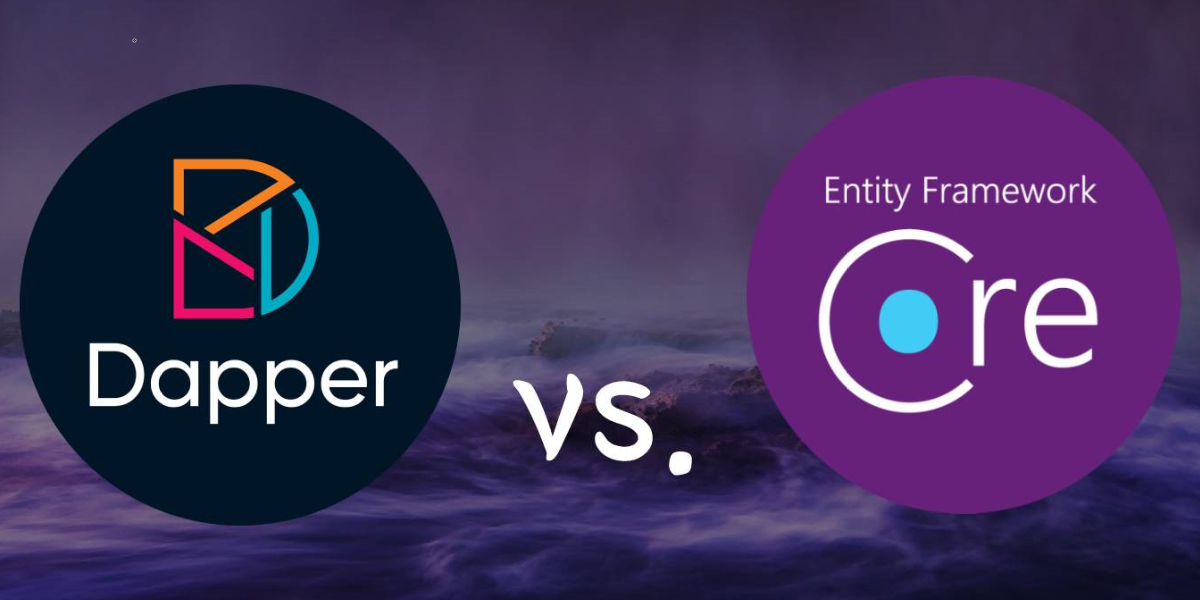
Dapper and Entity Framework (EF) are both popular data access technologies in the .NET ecosystem, but they have some differences in their approach and functionality:
Comparison
ORM vs. Micro ORM
- EF is a full-featured Object-Relational Mapping (ORM) framework that provides a higher level of abstraction and handles object-relational mapping automatically. It allows developers to work with database entities as regular .NET objects.
- Dapper, on the other hand, is a Micro ORM that provides a simple and lightweight object mapper. It focuses on improving performance and reduces the overhead of object tracking and other features present in full-featured ORM frameworks.
Performance
- Dapper is generally considered faster than EF in terms of raw query execution performance. It uses a simple mapping between query results and objects, resulting in less overhead compared to EF's complex object tracking and change tracking mechanisms.
- EF might perform slower in certain scenarios due to its additional features and functionalities.
Flexibility and control
- Dapper provides more control to developers as it allows them to write their own SQL queries explicitly. It suits well when developers have complex or specific performance requirements and want more control over the SQL queries.
- EF, on the other hand, abstracts away SQL queries, and it generates them automatically. This reduces boilerplate code but might limit the developer's control over the generated SQL and performance optimization.
Learning curve
- EF has a steeper learning curve due to its rich feature set, which includes tracking, change management, eager loading, lazy loading, and more.
- Dapper has a simpler and more straightforward API, making it easier to learn and use, especially for developers who are already familiar with writing SQL queries.
Popularity and community support
- Entity Framework has been around longer and is widely used in enterprise-level applications. It has a larger community and extensive documentation, making it easier to find resources and solutions to common problems.
- Dapper is also popular, especially for scenarios where high performance is crucial. It has an active community but might have relatively fewer resources compared to EF.
Summary
In summary, if you need a full-featured ORM with high-level abstractions and strong entity tracking capabilities, EF might be a better choice. On the other hand, if you have performance-sensitive scenarios or want more control over your SQL queries, Dapper could be a more suitable option. Some developers also use a combination of both, utilizing Dapper for performance-critical sections and EF for higher-level data access.
Syntax
Dapper examples
- Query a single entity
using Dapper;
var connection = new SqlConnection("YourConnectionString");
var result = connection.QueryFirstOrDefault("SELECT * FROM People WHERE Id = @Id", new { Id = 1 });
public class Person
{
public int Id { get; set; }
public string Name { get; set; }
public int Age { get; set; }
}
using Dapper;
var connection = new SqlConnection("YourConnectionString");
var results = connection.Query("SELECT * FROM People WHERE Age > @Age", new { Age = 25 });
using Dapper;
var connection = new SqlConnection("YourConnectionString");
var newPerson = new Person { Name = "John", Age = 30 };
var sql = "INSERT INTO People (Name, Age) VALUES (@Name, @Age)";
var affectedRows = connection.Execute(sql, newPerson);
Entity Framework examples
- Query a single entity
using Microsoft.EntityFrameworkCore;
var dbContext = new YourDbContext();
var person = dbContext.People.FirstOrDefault(p => p.Id == 1);
using Microsoft.EntityFrameworkCore;
var dbContext = new YourDbContext();
var people = dbContext.People.Where(p => p.Age > 25).ToList();
using Microsoft.EntityFrameworkCore;
var dbContext = new YourDbContext();
var newPerson = new Person { Name = "John", Age = 30 };
dbContext.People.Add(newPerson);
var affectedRows = dbContext.SaveChanges();